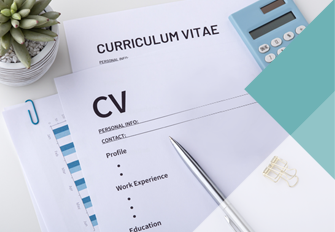 We often hear talks about the struggles of finding employment. What we don’t hear is talks about the quality of applications presented by candidates applying for positions. Often, candidates do not know how to present their information effectively and professionally. Nonprofessional CVs with irrelevant information can quickly be met with rejection letters.
We often hear talks about the struggles of finding employment. What we don’t hear is talks about the quality of applications presented by candidates applying for positions. Often, candidates do not know how to present their information effectively and professionally. Nonprofessional CVs with irrelevant information can quickly be met with rejection letters.
The reality is that high unemployment rates result in recruiters being overwhelmed with applications for vacant positions. Working through several CV’s may force recruiters to focus on complete professional CVs that quickly provide them with relevant information about candidates that matches the requirements of the position that they are recruiting for.
It is therefore very important that candidates understand what important information should be relayed to recruiters or prospective employers.
Our advice is to remember the following points when compiling a CV:
Custom each application.
Write a cover letter to include with your application. Make sure that you highlight why you would make an ideal candidate for the position. Refer to the requirements mentioned in the advertisement and elaborate on your experience relating to the specific needs of the company. Jobs and industries differ. It is therefore important that you do not make use of a generic cover letter for all your job applications. Focus on the specific advertisement and motivate why it would be a good decision to invite you for an interview.
Keep it short and professional.
A good length for a CV is about three pages. Keep the information short and relevant. Avoid using bright colours and font sizes that might make your CV look unprofessional.
If you are using a photo on your CV, make sure that it is a professional-looking photo. Rather refrain from using selfies.
Personal information.
Be sure to provide the correct contact details on your CV. It can be a challenge getting hold of a candidate who provided you with the incorrect telephone number or email address. Should you provide an alternative contact number, make sure that the person whose number you are providing, knows that you are providing their contact number. Remember to update your CV when your cell phone number or email address changes. It is best to include your ID number or DOB.
If the advertisement requires a candidate to have a valid driver’s license, include this in your CV.
If you are applying for a position in another province or a distance from your residential address, indicate whether you are willing to relocate or able to make the commute.
Include all relevant work experiences (don’t leave gaps).
Begin by listing your most recent work experience first. Elaborate on your tasks and responsibilities. Each organisation operates differently and thus their tasks and responsibilities for certain departments, will differ. It is a good idea to include more detail of what you were responsible for.
Also indicate what periods you worked at different companies and provide details for leaving employment.
Recruiters and prospective employers will often question gaps in a CV. We understand that there are reasons for some periods of unemployment (for example seeking new employment after retrenchment or becoming a mother) but it is always a good idea to fill in the gaps.
Avoid the current trend of rating your skills.
While it is important to focus on highlighting your industry-related skills, IT knowledge, languages, and qualifications, it seems that the current trend is for applicants to rate their own skills. While making no mention of the processes followed to rate their skills, candidates rate their problem solving, time management and communication skills, to name a few.
This can present challenges for candidates when asked about the ratings in an interview.
Check for errors.
Having spelling errors on your CV, does not put your application in a favourable position. Decision makers may question your ability to work accurately. Make sure to use spellchecker and ask someone to double-check what you have written.
Include contactable and recent references.
Be sure to provide recent references that can be contacted. Try to keep in contact with your references to ensure that you are aware of any changes in their contact details, like a new email address or phone numbers, etc. Avoid using references that only knew you for a short period of time (like a lecturer). Make sure that your references know you are including them in your CV and that they gave permission to be contacted.
Although colleagues, friends and family can provide character references, it is always a good idea to include a senior colleague or manager that will be able to comment on your work ethic.
We wish you all the best for compiling your CV and for being the successful candidate for the position you apply for.

